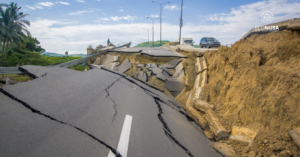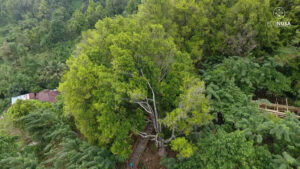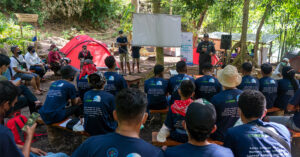
In general, food is an essential requirement for humans. Food is needed to arrange the body, as a source of energy and certain substances to regulate metabolic processes. The important role of food is to avoid malnutrition or hunger, which directly affects the quality of human resources.
Local food potential is widespread throughout the archipelago, one of which is found in the Land of Papua. Papua has high potential and amount of food diversity. The types of food in Papua such as sago and tubers have been cultivated by the people of Papua for generations, to meet the needs of daily life.
The Food and Land Use (FOLU) Study was carried out by the Regional Research and Development Agency (Balitbangda) of the Government of West Papua Province in early 2019. This study focuses on the linkages between food, land use and management of forest and marine-based ecosystem services. , to ensure the sustainability of life and sustainable development.
Azizah Hapsari, who previously led the research at the Econusa Foundation, explained that FOLU was targeting the link between food and land use. According to him, food is one of the complex issues that must be seen from a comprehensive perspective. Starting from the issue of malnutrition, stunting, to government regulations in land use.
“The FOLU study is clearly needed, because West Papua is one of the provinces with a high level of food vulnerability in Indonesia,” Hapsari explained. Then the solution offered must be holistic, by looking at it from various perspectives. This is where the role of the FOLU study is, by breaking down the problem, analyzing and providing recommendations to the Regional Government (Pemda). “These recommendations are related to which factors should be prioritized to deal with food problems,” he continued.
According to the Program Director of the EcoNusa Foundation, Muhammad Farid, EcoNusa helps the government through the regional apparatus organization (OPD) to ensure food security. “This food security is to ensure the sustainability and availability of needed nutrients, which are obtained from forests and the sea in West Papua,” he explained.
For this, EcoNusa is determined to create a zero deforestation forest. This is a significant effort to protect the environment and the rights of indigenous peoples. “The implementation that we do in the program, one of which will manifest in the potential for ecotourism and increased waters productivity through land and sea aquaculture activities,” added Farid.
By protecting forests, environmental services from forests will be utilized by the tourism industry. In addition, the activity will also maintain the availability of water for inland fisheries. Sedimentation to coastal areas that threaten coral and mangroves as a place for spawning marine fish, will be stopped. All of these activities will lead to the welfare of the community.




